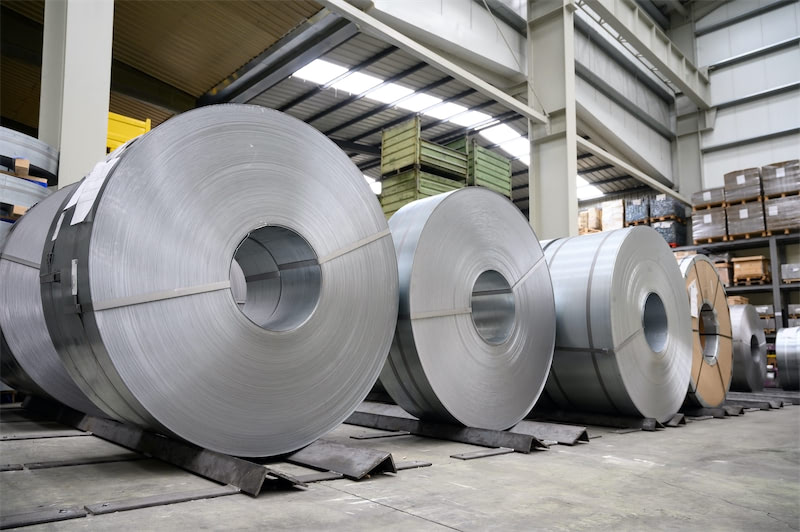SHANGHAI, Oct 24 (SMM) - Alcoa is reportedly lobbying the Biden administration to block aluminium imports from Russia after the recent escalation between Russia and Ukraine, and the White House is considering a range of options to limit imports of Russian aluminium, including a complete ban on imports of Russian aluminium, higher tariffs and sanctions Russian Aluminium Corporation (Rusal). A ban, once implemented, could prompt aluminium consumers in the U.S. and other countries to look for alternatives.
According to S&P Global Commodities Insights report, Burnham, chairman of En+, a leading global producer of low-carbon aluminium (with a stake in Rusal), said in a certificate that this action against Rusal could potentially affect U.S. downstream industries, including hundreds of thousands of jobs, hurting American consumers and the American economy, and adding thousands of dollars to the price of cars and trucks.
In fact, going back to history, the United States imposed sanctions on Rusal as early as in April 2018. Initially, the Treasury Department stipulated that all sectors of the United States should sell the stocks and bonds of the above-mentioned companies within one month, and terminate the existing contract with Russia within two months. But the deadline was later extended to October 23. Until late January 2019, the Trump administration abruptly lifted sanctions on Russia. During this period, the LME 3M aluminium price soared 37.5% from April 6 to April 19. Rusal's sanctions have led to an increase in China's aluminium exports. According to data released by the General Administration of Customs of China, China's exports of unwrought aluminium and related aluminium products rose to 517,000 mt in August 2018, close to July's 520,000 mt, also the highest level in three years. From June to August 2018, China's aluminium exports exceeded 1.5 million mt, setting a new three-month-length high. Aluminium exports were also generally higher than the same period in 2017 and 2019.
Today, the United States has once again signalled sanctions against Rusal, and the United States has begun to reduce Rusal imports since 2018. “While the U.S. still imports some primary aluminium from Russia, the 2018 sanction has significantly reduced U.S. access to Russian metals," the US AluminIum Association said in a statement to S&P Global Commodities Insights, “the proportion of Russian primary aluminium has dropped from 15% in 2016 and 2017 to 5% at present." According to the U.S. Department of Commerce, the U.S. imported about 192,000 MT of primary aluminIum from Russia in 2021, accounting for just over 5% of the 3.64 million MT of primary aluminium imports that year. Although Russia is the third-largest primary aluminium exporter to the U.S. in 2021, aluminium imports from Russia lag far behind Canada and the United Arab Emirates with 2.54 million mt and 354,000 mt respectively.
According to SMM analysis, if the United States bans the import of Rusal, the year-on-year growth in China aluminium exports happened in 2018 will re-stage, but the growth will be affected by the differences in the past and future with regard to the macro-environments. According to BWC Chinese website, the Federal Reserve’s latest Beige Book released on October 20 showed that due to growing concerns about weak demand, the U.S. economic outlook has become more pessimistic, and U.S. companies continue to face issues like weak demand, recruitment, supply chain challenges. The word "recession" was mentioned 13 times in the report, and some Fed governors began to worry about the risk of aggressive and excessive interest rate hikes, which surprised the market. It can be seen that the importing Rusal products may bring higher cost to global trade due to the resale of Rusal, and increase the "hyper" inflation in the United States. The low cost of Chinese products will contribute to world inflation and benefit domestic aluminium exports. But at the same time, as interest rates continue to rise overseas, high-interest loans will erode debt-fuelled prosperity and cool the economy, leading to weaker demand, which will also be a factor undermining exports.
![Overseas Aluminum Supply Disruptions Continued, and Cast Aluminum Alloy Futures Surged Sharply Overnight [SMM Cast Aluminum Alloy Morning Comment]](https://imgqn.smm.cn/usercenter/fFkYh20251217171651.jpg)

![Bahrain Aluminum Hit by Force Majeure; LME Aluminum Prices Reach a New High in 22 Years [SMM Aluminum Morning Meeting Minutes]](https://imgqn.smm.cn/usercenter/zlIyw20251217171654.jpg)
